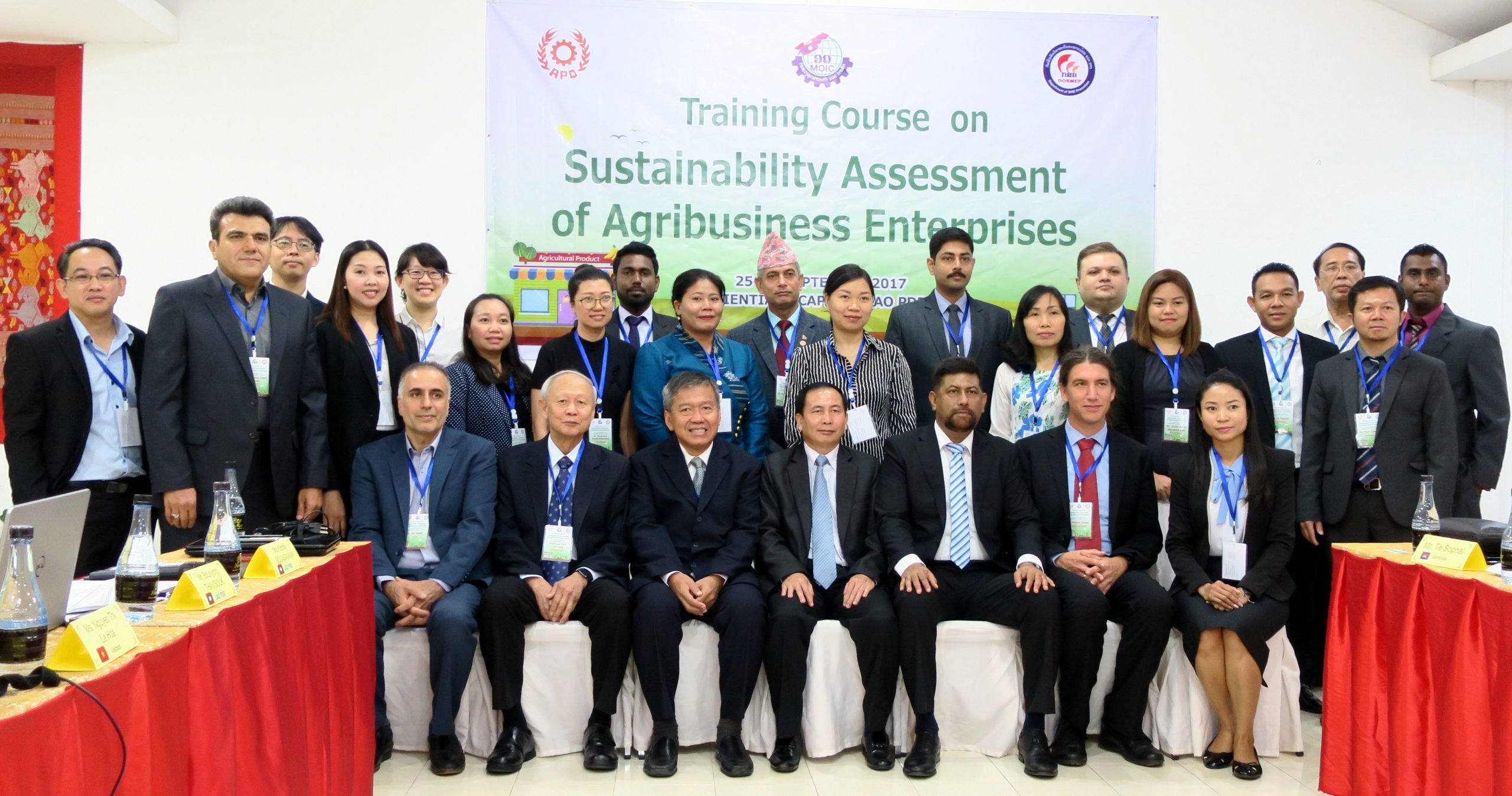
Select Page
Sustainability assessment has emerged as an important policy tool for governments and the private sector, including agriculture, and several approaches applicable to farms, farming systems, and supply chains have been developed. However, they differ considerably in terms of scope, assessment level, and precision of indicators used. This leads to contradictory results that may not be comparable.
To overcome these shortcomings, sustainability assessments should include a precise definition of “sustainability,” along with a description of the methodological approach and indicator sets for overall harmonization. As a step toward this, the Asian Productivity Organization (APO) organized a five-day training course on Sustainability Assessment of Agribusiness Enterprises in Vientiane, Lao PDR, 25–29 September 2017.

The training-of-trainers course was aimed at enhancing the knowledge and skills of participants on the latest approaches, tools, and techniques for assessing the sustainability of agribusiness enterprises and their applications. It was also designed to promote the adoption of best practices, newer technologies, and innovative models of sustainable development by farms and agribusiness enterprises, particularly SMEs in the Asia-Pacific.
Delivering the opening remarks, Department of Small and Medium Enterprise Promotion (DOSMEP) Deputy Director General and APO Alternative Director for Lao PDR Sa Siriphong reported that while more than 70% of the population in the country were farmers, food and agriculture businesses in the country faced challenges in term of sustainability.
“The environments of agribusiness movements have changed in recent decades, affected mainly by globalization, free trade agreements from various economic blocs, climate change, and regulations of intergovernmental agencies. The challenges arise globally and, of course, Asia as an agricultural region cannot avoid those impacts,” he stated.
Siriphong also hoped that the APO training course would allow member countries to obtain an in-depth understanding of how to sustain agribusinesses through the research-based recommendations and experiences of the speakers. “The participants will also be able to understand the best practices of other member countries and adapt them to your respective countries,” he added.
Sharing details of the project, APO Agriculture Department Program Officer Dr. Shaikh Tanveer Hossain explained that the program format included lectures, presentations, sharing of best practices, hands-on exercises, and a field visit. The APO expects that the course will enable participants to formulate strategic action plans to promote the sustainability of agribusiness enterprises in member countries.
Twenty participants from 13 member countries attended the training conducted by international experts Dr. Christian Schader, Head of Sustainability Assessment, Department of Socioeconomics, Research Institute of Organic Agriculture, Switzerland; Dr. Louie A. Divinagracia, College of Public Affairs, University of the Philippines Los Baños; and Senior Adviser, Director’s Office, Professor Paul P.S. Teng, National Institute of Education, Nanyang Technological University, Singapore. It was organized in association with DOSMEP and the Lao National Productivity Organization.